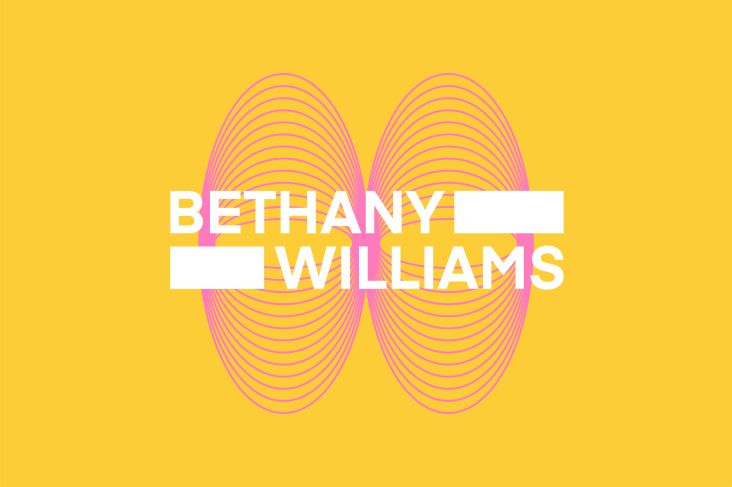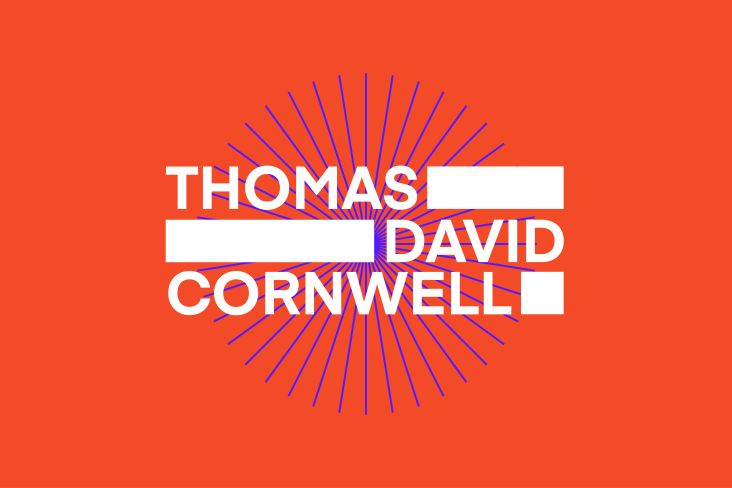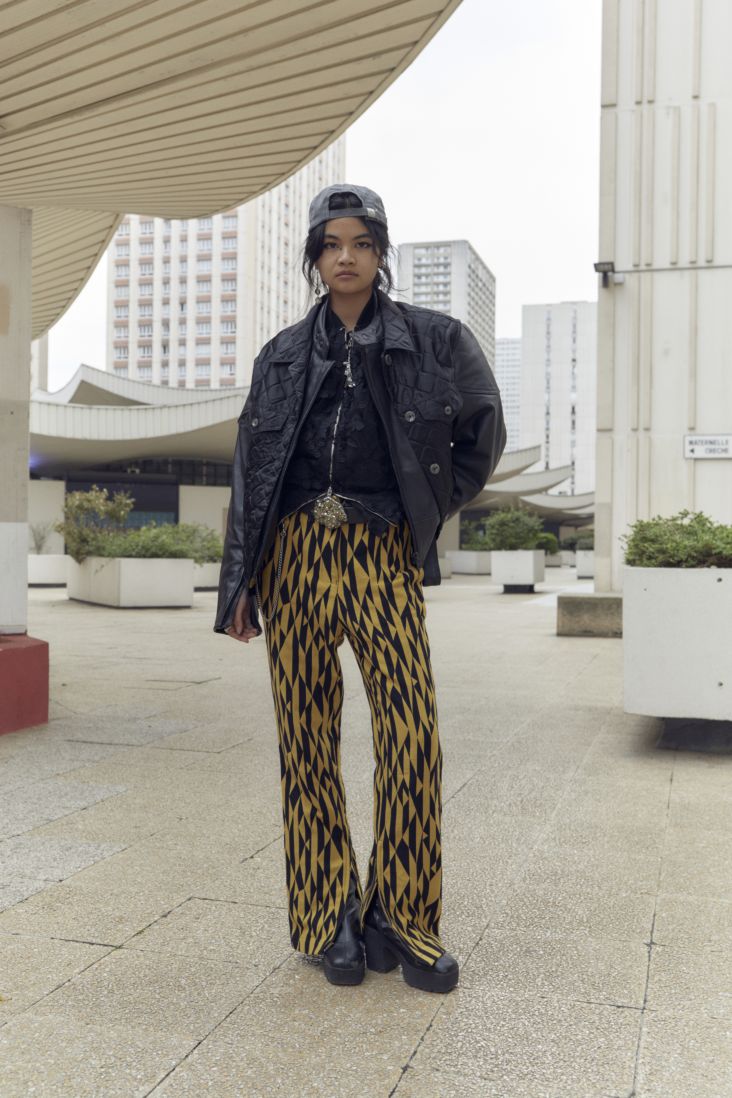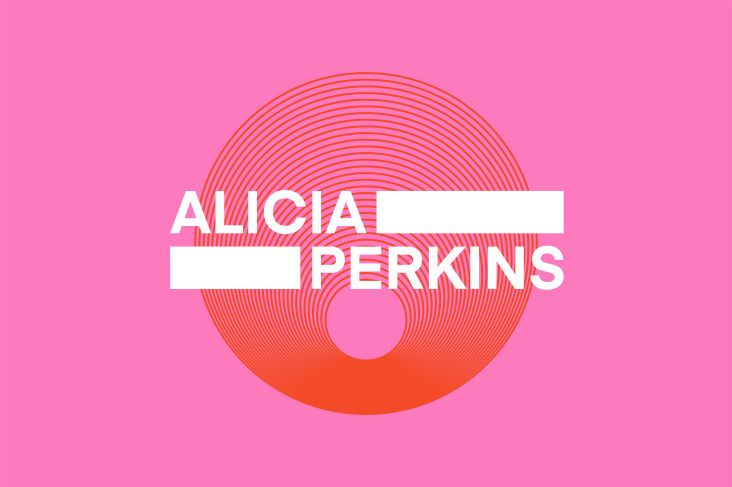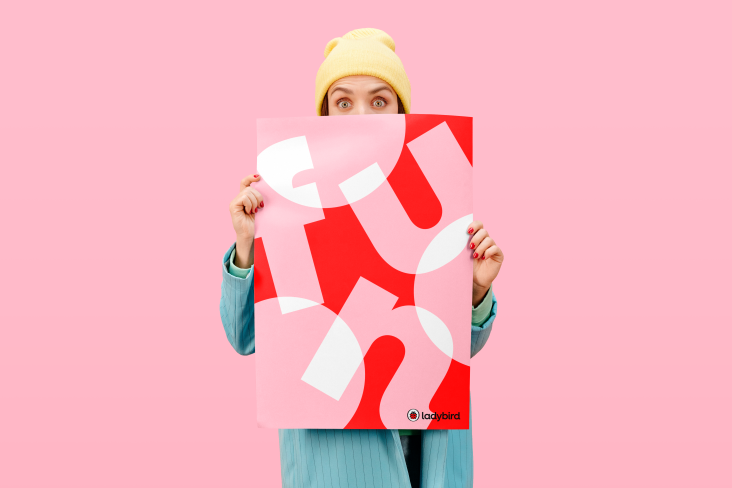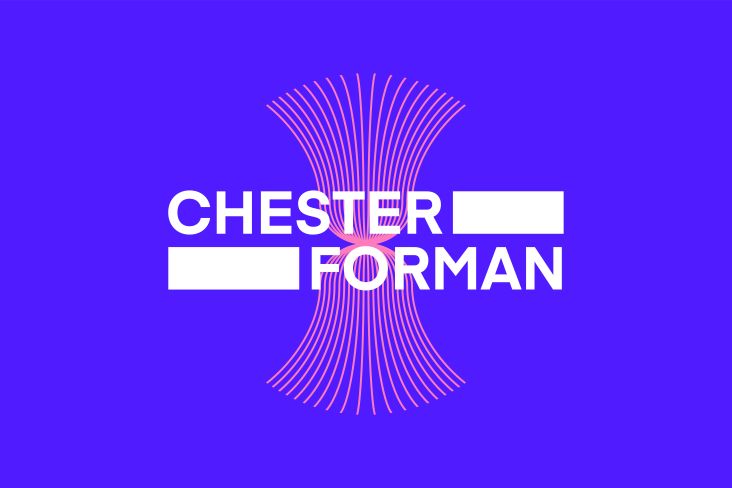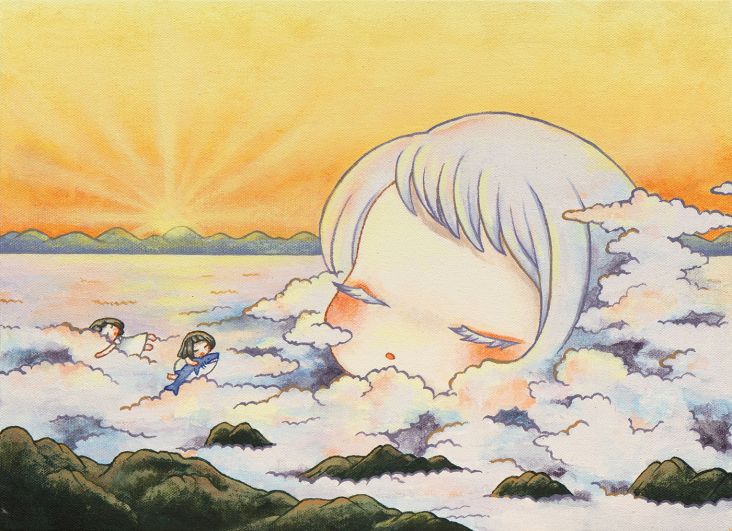Introducing: Chloe Watts on pandemic silver linings and the power of creativity for better mental health
In the first of our new series focusing on new creative graduates, we celebrate Chloe Watts from the Manchester School of Art. She chats openly about her mental health challenges and how she overcame them to produce a final-year grad show that's got everyone talking.
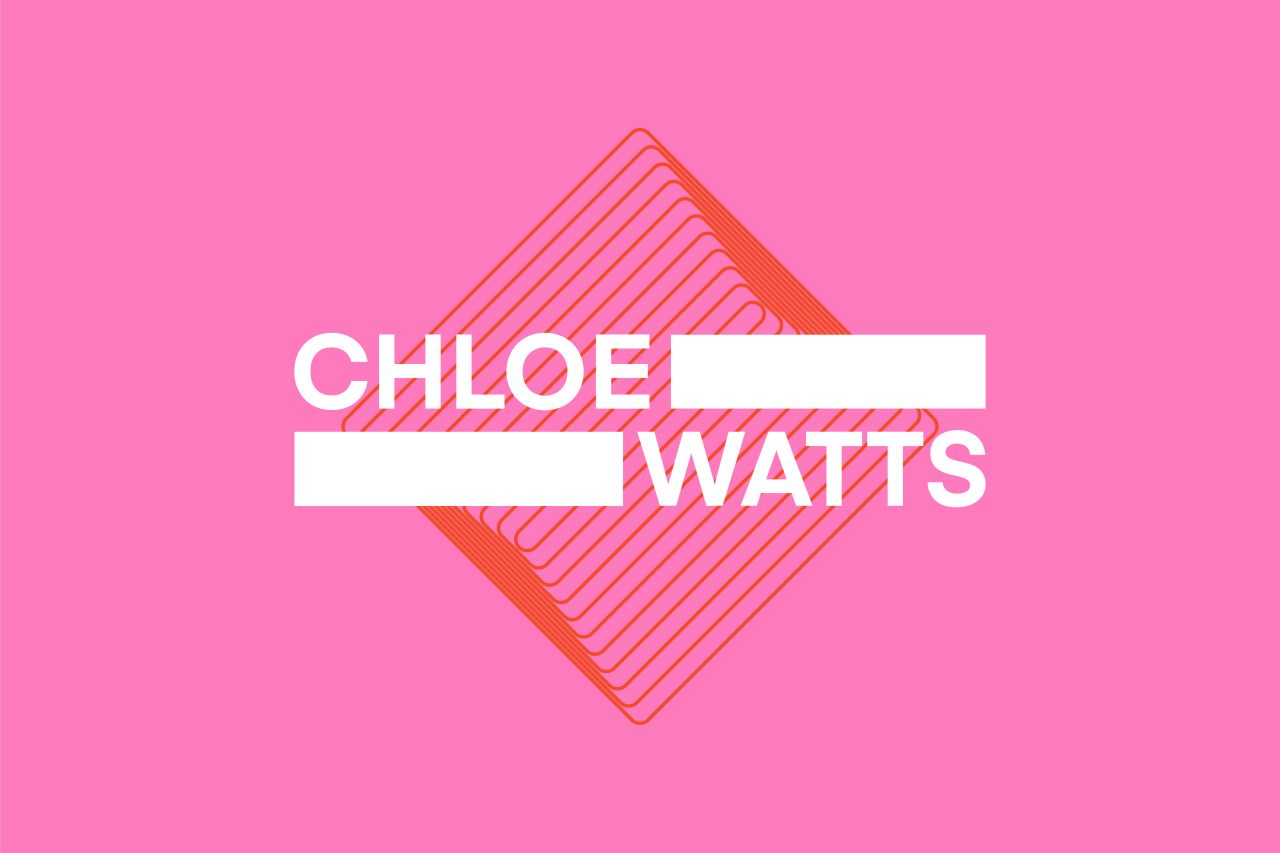
This time of year is one of the most exciting for us at Creative Boom, as a new generation of practitioners emerges from our art colleges and universities and shows us what they're capable of in their graduate shows. This summer, we've decided to run a special series focusing on 12 names to champion and share.
Sifting through such a wealth of talent is a tough job. And of course, all students reaching graduation this summer deserve our praise and congratulations, not least for their determination to continue studying through a global pandemic. But we believe the 12 creatives we've picked out particularly deserve your attention.
First up is Chloe Watts, whose final year project offers an uncensored view into her brain and documents her experience of anorexia. In this exclusive interview, Chloe tells us about her artistic journey, how she's navigated her mental health challenges, and her hopes for the future.
Where did you grow up?
My childhood was an unusual one. I grew up in Warrington, but I went to school in Manchester. I have an excellent memory and put a lot of pressure on myself from a very young age due to my Asian heritage. I was always an overachiever, and because of this, I was actively steered away from art as a subject.
I spent the majority of my teenage years in inpatient psychiatric hospitals. At this point, I realised the only thing I wanted to do with my time was to create. Upon my discharge from the hospital, I could have returned to full-on academia. However, I knew how intrinsic creating was to my well-being, so I chose to pursue art. Art was the one thing that kept me going during some of the most difficult times in my life. So to me, it was a no-brainer.
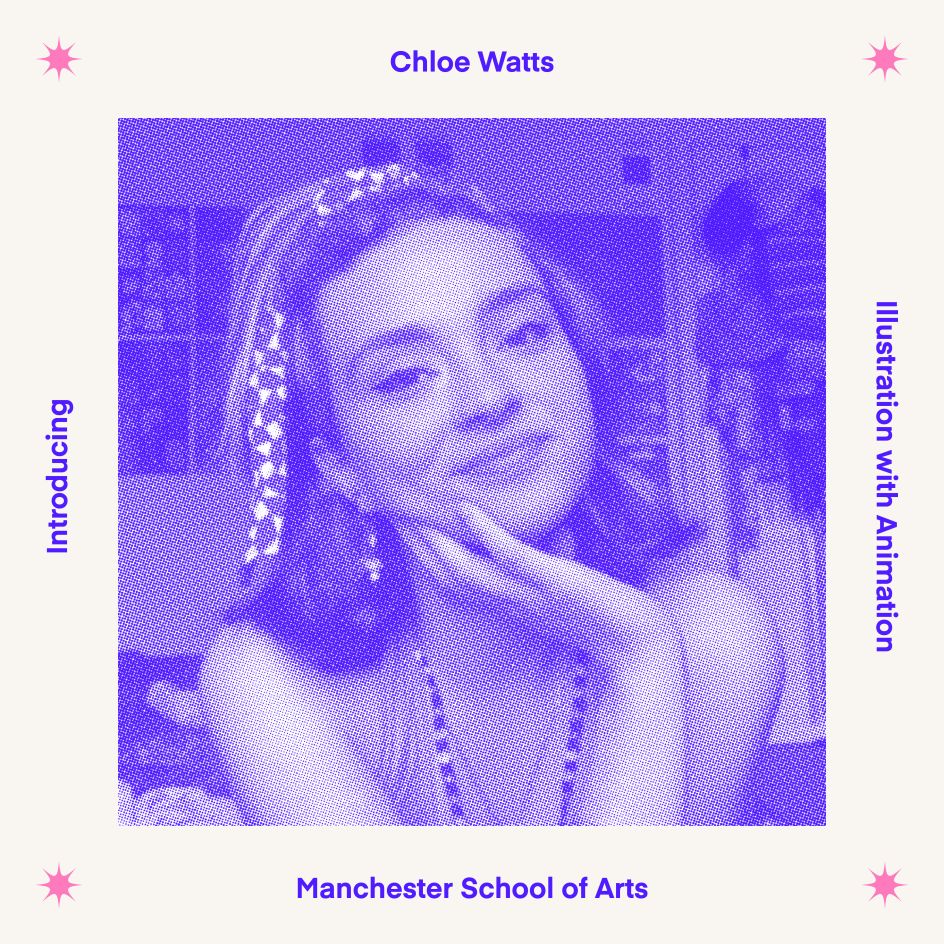
How did you get into illustration and animation?
I originally wanted to take Foundation Art and Design at Manchester School of Art. But due to a lack of qualifications, I first had to do a year of foundation at Warrington. My second foundation year was the best year of my life. I thoroughly enjoyed being in the art school environment and surrounded by fellow creatives. So it only felt right to continue and do my BA in Illustration with Animation at Manchester.
What was your experience studying during Covid-19?
Studying during a worldwide pandemic was frustrating, to say the least. It was difficult to suddenly be taken away from all of my friends and such a beneficial environment. I missed face-to-face teaching, but I missed university resources and workshops the most.
But returning to my family home and fulfilling briefs independently gave me confidence as a self-led practitioner. It was during this time that I started selling my work through my own small business.
The time we spent in university, surrounded by peers and tutors, was particularly great. I was lucky that it was only my second year that was disrupted, so I had time to settle and progress.
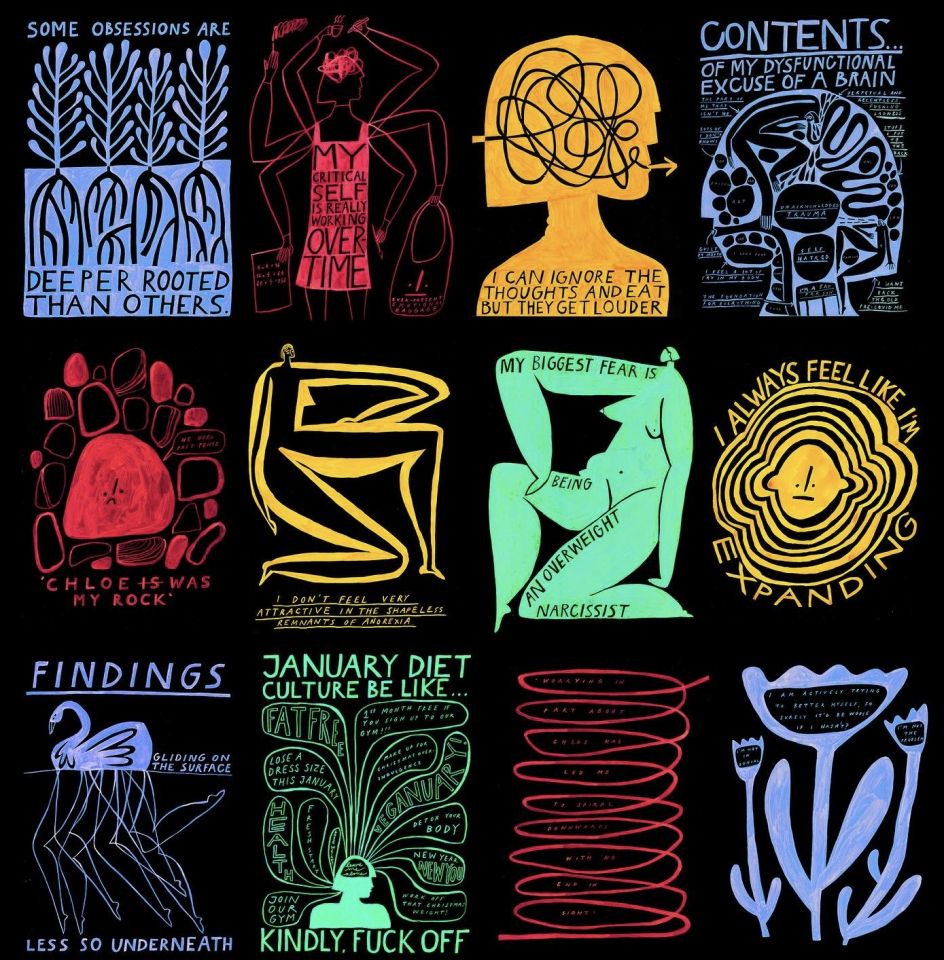
© Chloe Watts
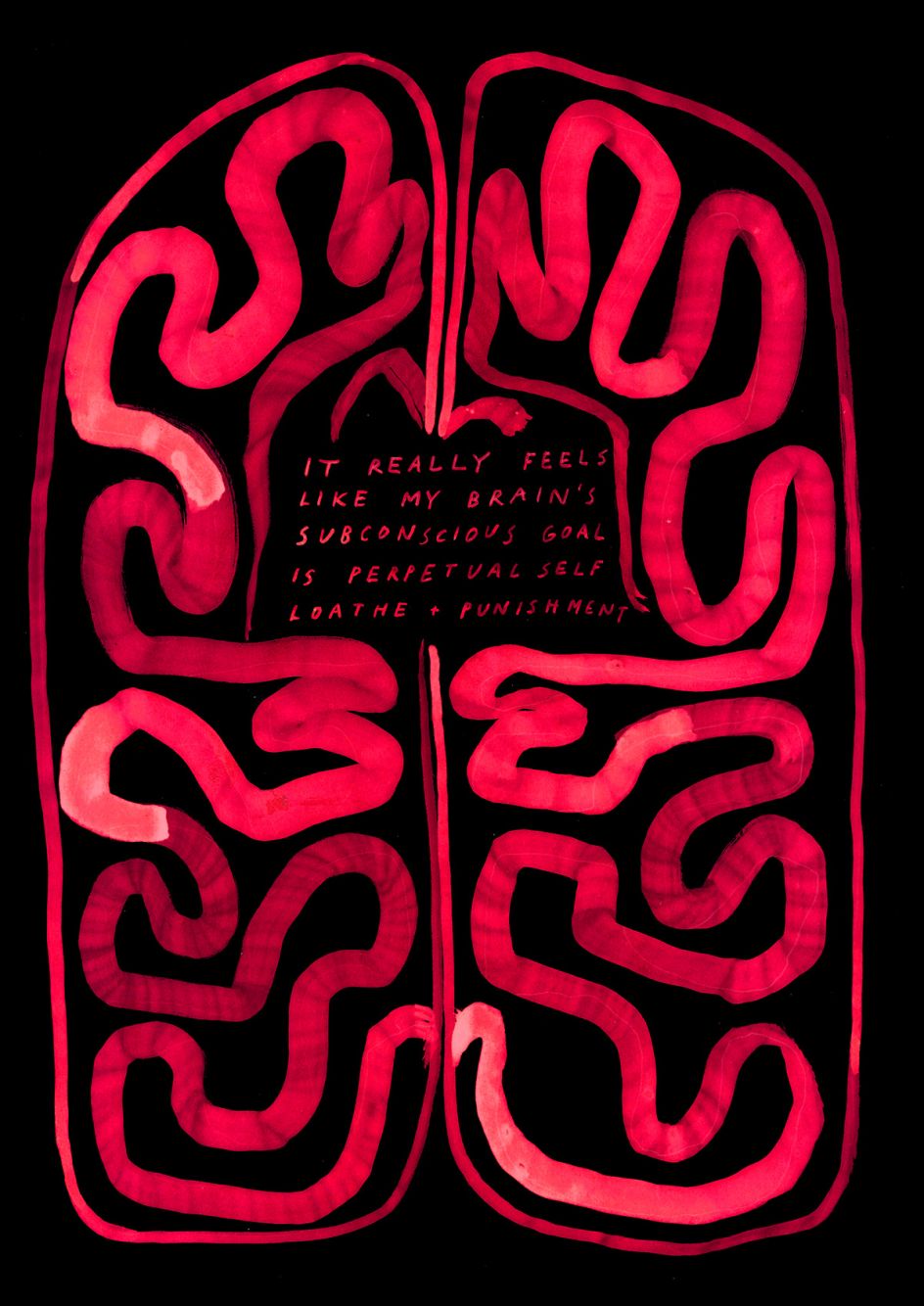
© Chloe Watts
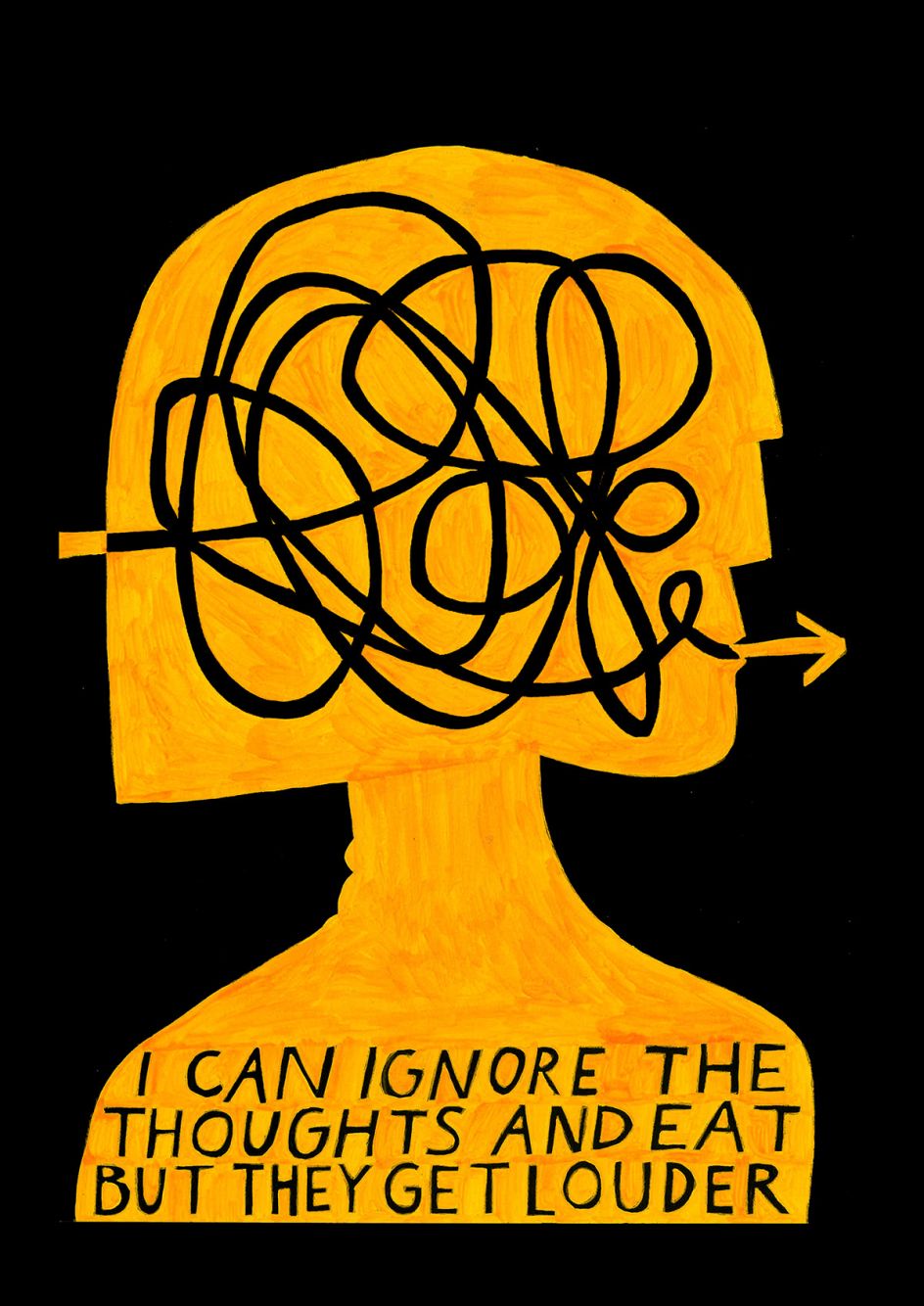
© Chloe Watts
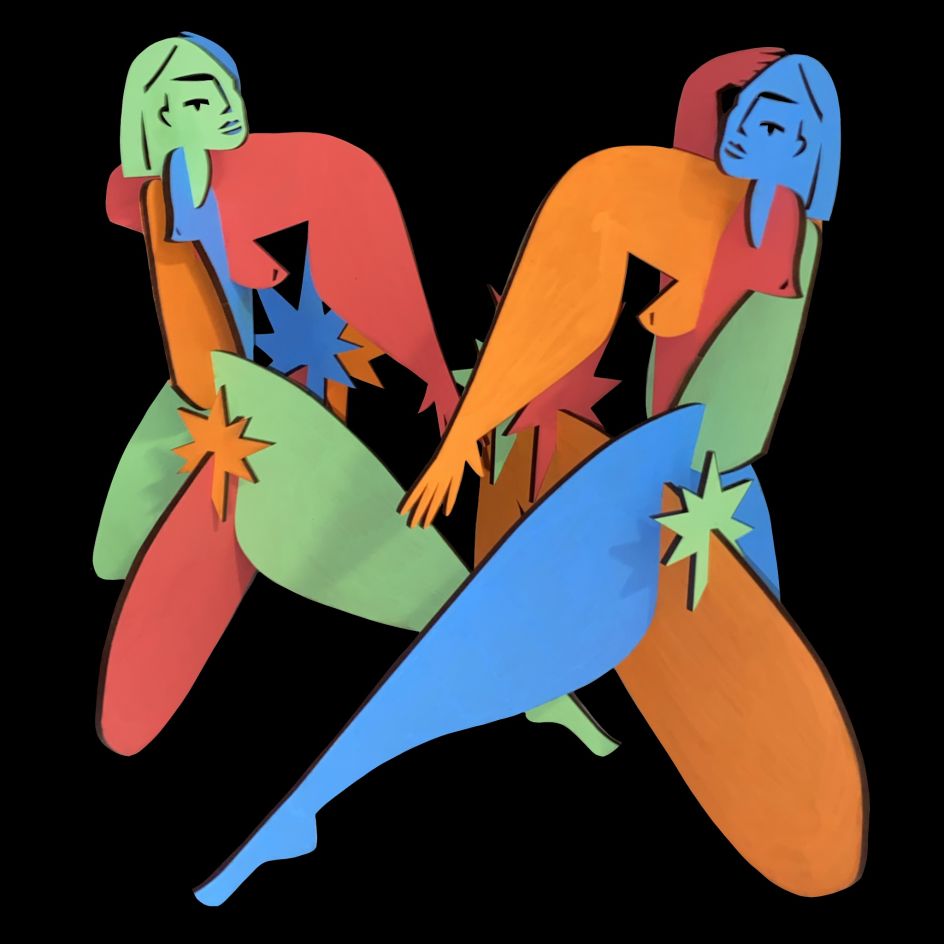
© Chloe Watts
How has your final year been?
Due to the pandemic and other stresses in my life, I relapsed and returned last September as a rather unwell me. I was very frustrated because even though I was suffering from anorexia, I was actively seeking and being denied help.
I was offered an extension for my university work. However, I've utilised my practice as a coping mechanism and distraction for a while now, so I chose to tackle the year head-on. And this I did. Although I had no self-confidence, I started a series of illustrations alongside my dissertation. These 16 drawings were a catalyst for what was to come and also for my recovery.
In the third year, we have one long project called Authorship, which is completely self-led. I used the time to develop the initial 16 drawings into part of a more comprehensive series.
My drawings explored anorexia, past trauma, and fear of the future. The complete set of 192 drawings can be viewed at mymessybrain.myportfolio.com. I selected 32 drawings to screen-print and feature as the main body of my degree show work. The concept is that I created a publication that I could have given to my younger and poorlier self.
Alongside this, I ventured into creating in a 3D way, something I had never done before. I quickly discovered that my illustrative style lends itself well to interlocking shapes. I utilised this knowledge to develop a series of figures, and these went on to be an absolute triumph.
The Vertical Gallery team commissioned me to take my figures and scale them up: they were only four inches shorter than me! The process of making the large-scale pieces was long and laborious, but the outcome made it feel well worth it.
Believe in yourself and your work. In education, it can be easy to outsource this belief to your tutors, but as a practitioner, you need to have that confidence come from within you.
How would you describe your style?
My work is bold and bright, juxtaposing alongside rather serious and meaningful messages. It usually features primary colours, as this is my favourite palette to work with. And it varies but can be figurative, communicative and authentic. I also use typography as recurring characters/motifs.
Who or what inspires you?
Within the art world, I'm massively inspired by the works of Matisse and Picasso. I love the fluency with which they can portray the figure, and this is something that I want to develop within my own work. As for the nature of my work, I like to work from my personal experiences. I hope to in future to work with others to communicate complex themes and ideas.
What are your career plans?
I have a consistent flow of design work and hope to one day be able to survive entirely from freelancing. I'm always open to work and value having a lot to work on because this is what keeps me distracted. Shortly, I hope to either study at the Royal College of Art (RCA) or the Royal Academy of Arts (RA).
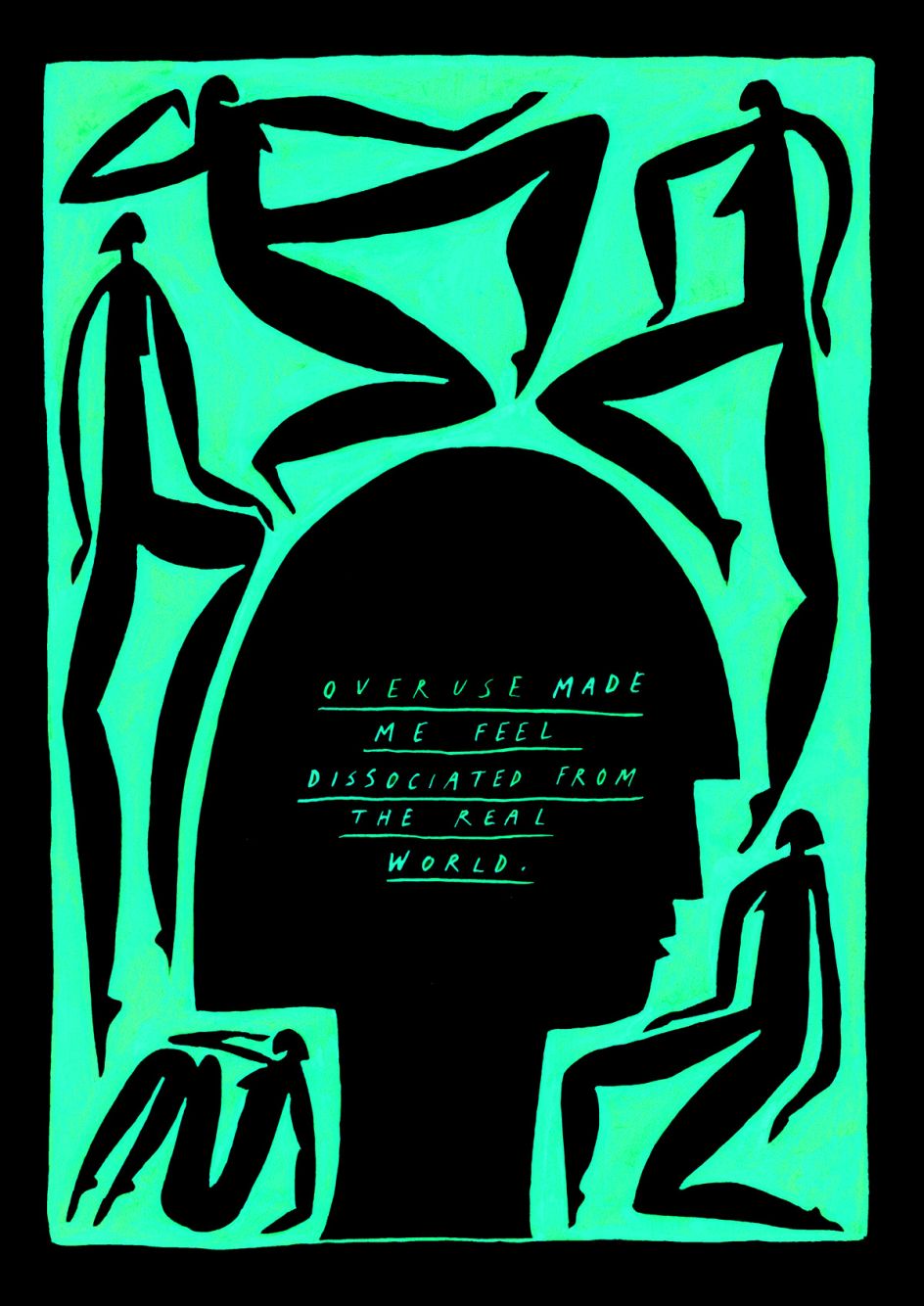
© Chloe Watts
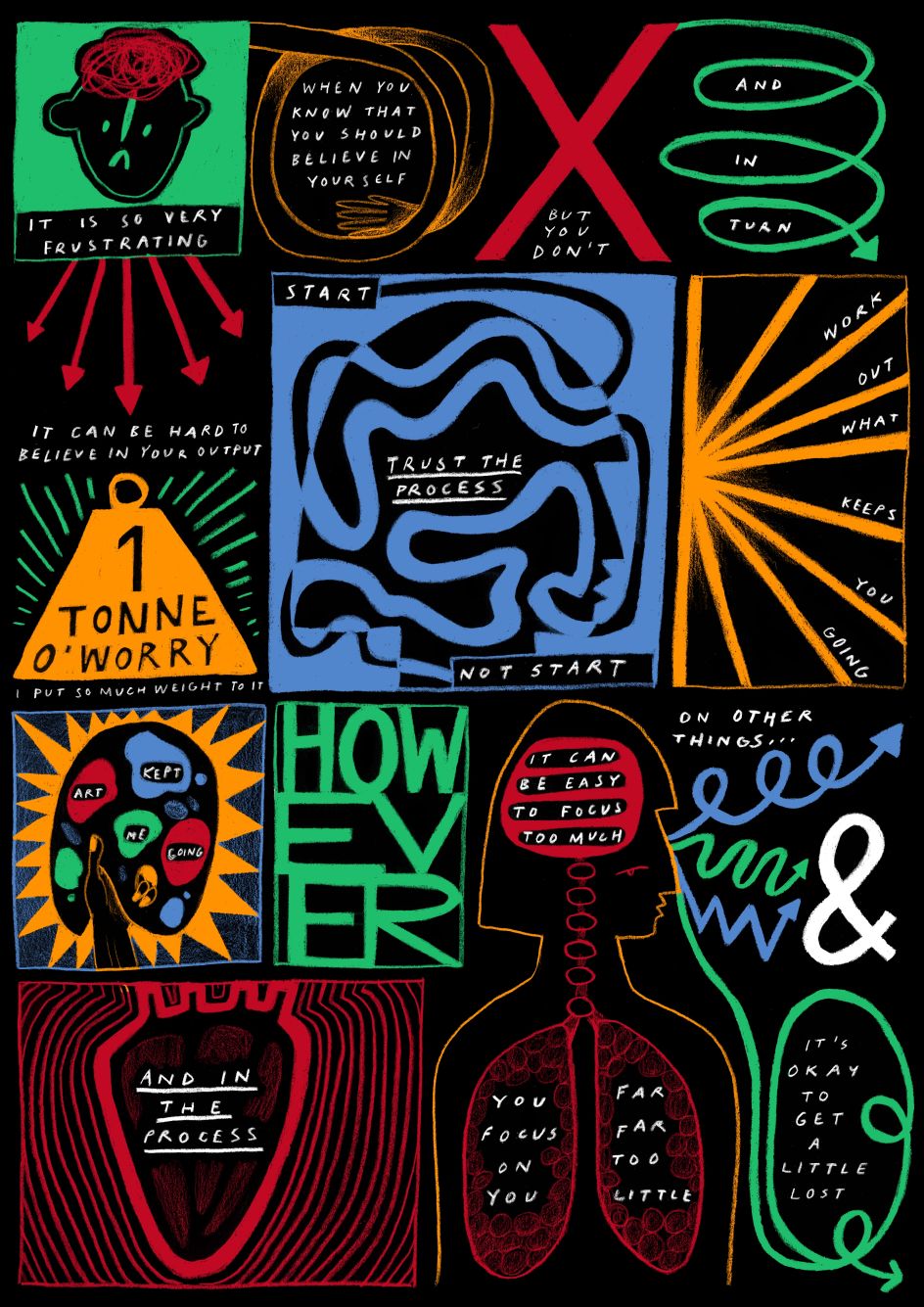
© Chloe Watts
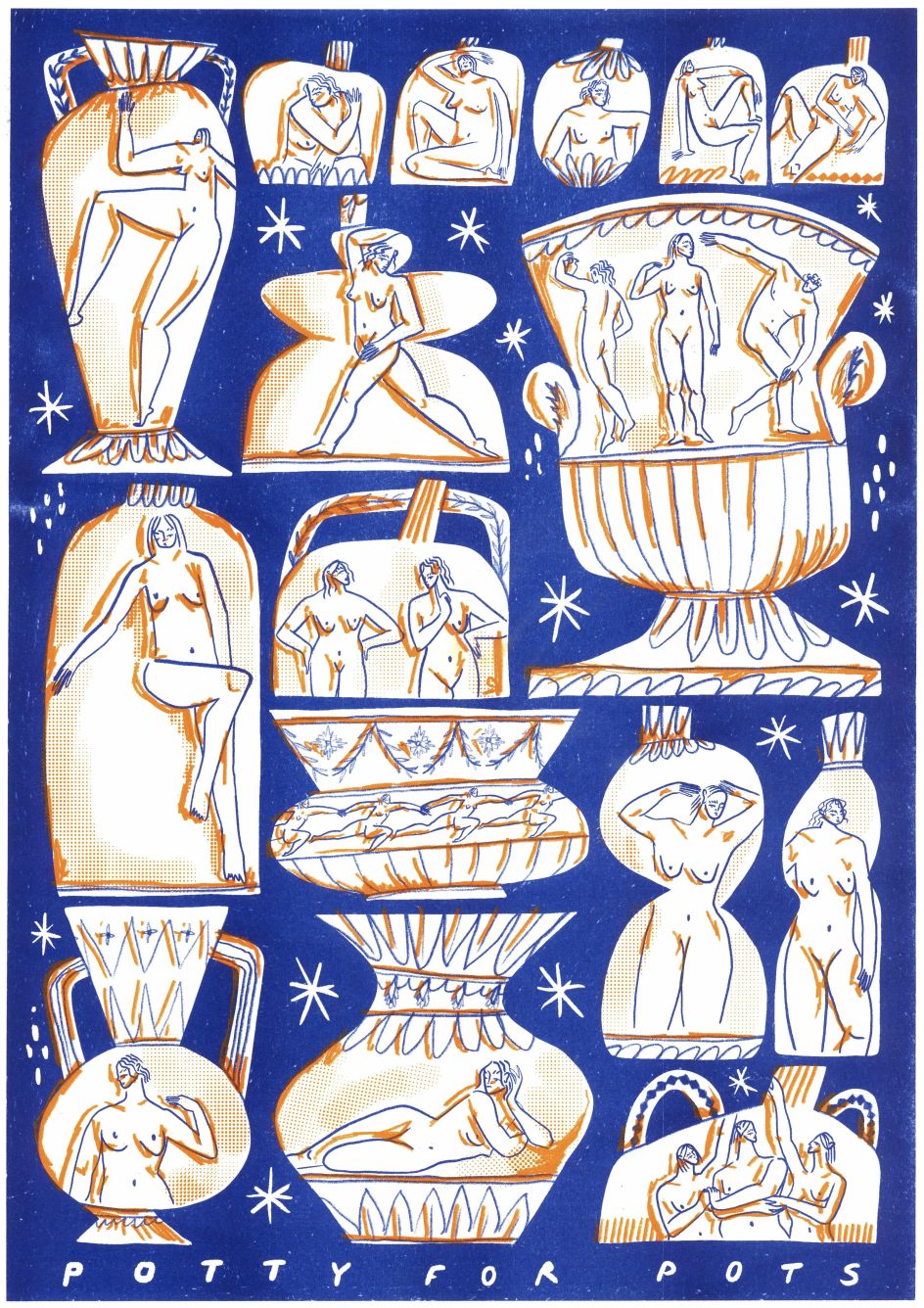
© Chloe Watts
How do you feel about graduating in the summer of 2022? What are your hopes and fears?
I was terrified by the idea of graduating because I've been in full-time education for five years. But now, I'm looking forward to having a break to work out what's best for me and where I plan to go in future.
I was frightened that I might lose all desire to create. But I know that creating is so intrinsic to my being that this simply will not happen. I hope to slowly build myself up a portfolio and clientele and be able to further my practice. The fact that the future is so open is scary, but I finally feel ready to tackle the world head-on!
What advice would you give to others following you into the industry?
Believe in yourself and your work. In education, it can be easy to outsource this belief to your tutors, but as a practitioner, you need to have that confidence come from within you. I would also say to make as many connections as possible and build your own creative network.
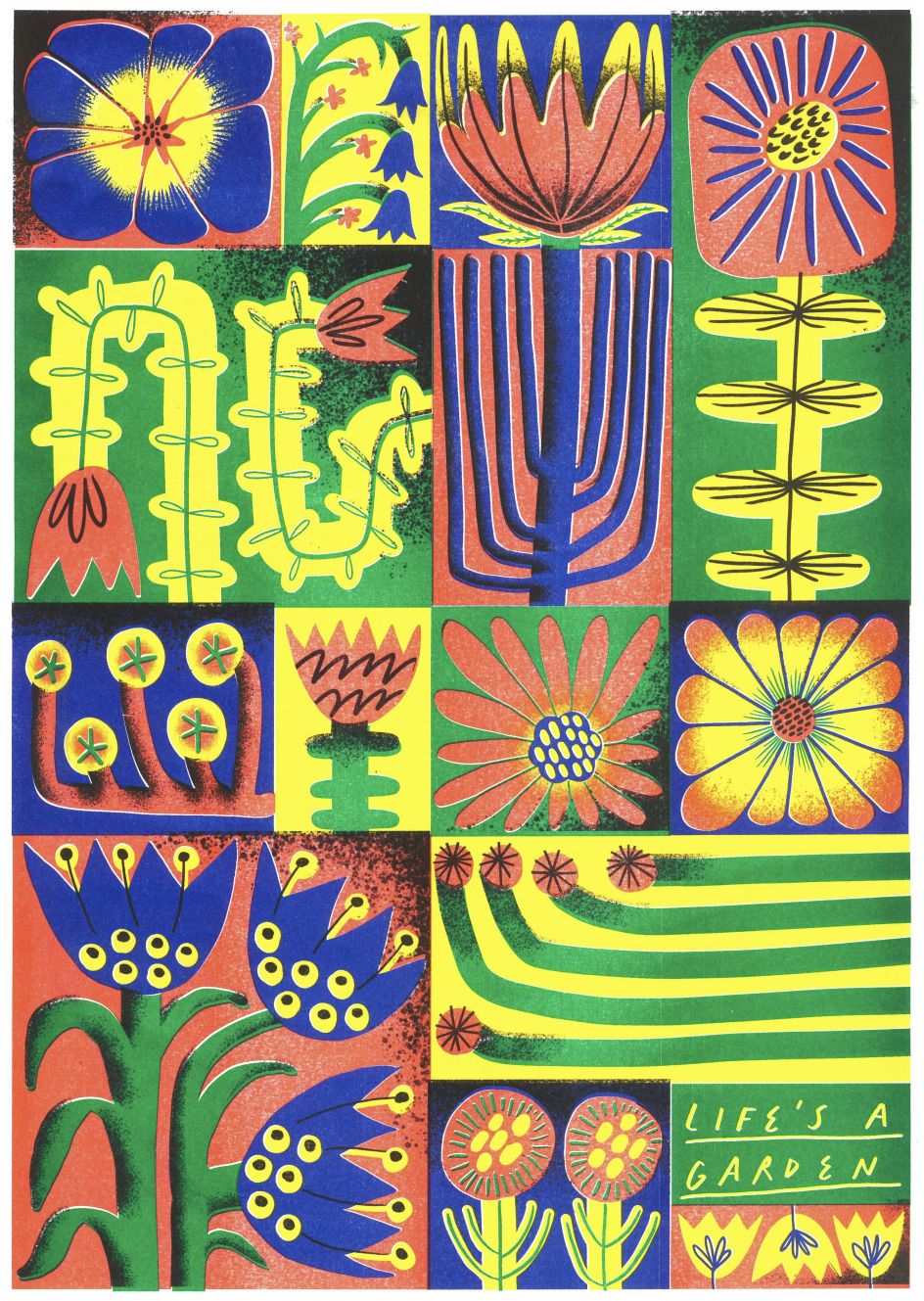
© Chloe Watts

















